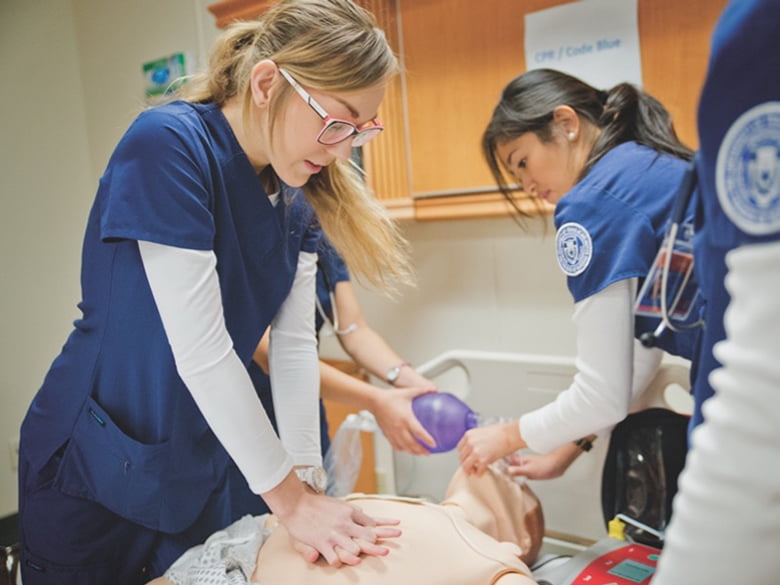411 S. Nedderman Drive
Box 19407, Arlington, Texas 76019-0407
P: 817-272-2776 | F: 817-272-5006
Understanding Stress and Well-Being of Nursing Students

“This research partnership helps to contribute to what is known about stress, self-care, and well-being in pre-licensure nursing students,” shared Regina Urban, assistant professor in undergraduate nursing in UTA’s College of Nursing and Health Innovation. Dr. Urban and her research colleagues at Texas Woman’s University, Texas Christian University, and Texas Health Resources recently had their article “Health-Related Behaviors, Self-Rated Health, and Predictors of Stress and Well-Being in Nursing Students” published in the Journal of Professional Nursing.
The article is the first part of a larger, multi-phase study the team has completed to look at health-related behaviors and concepts such as mindfulness, stress, well-being, self-compassion, and happiness in pre-licensure nursing students.
The first phase was a cross-sectional measurement of nursing students’ perceived stress, self-compassion, satisfaction with life, and happiness, wherein students rated their own health. They found that students who rated their health as high typically also had higher levels of self-compassion, were more satisfied with life, and reported lower levels of stress.
“When stress is high, students are their most vulnerable. This is the point at which we want to think about the ways in which we interact with students so we can assist them more effectively, which is important for educators to realize,” said Urban, as she reflected on the importance of these findings.
Nursing school is commonly understood to be stressful. But this research team wants to understand not only student stress levels during nursing school, but also what may contribute to the well-being of nursing students – by exploring concepts such as satisfaction with life, self-compassion, and subjective happiness.
The researchers hope that by exploring these concepts they may also gain insight into learner well-being, which they feel is just as important as learning how to insert an IV or improving critical thinking skills. Eventually, the researchers hope to develop interventions to assist pre-licensure nursing students to develop skills prior to entering the nursing workforce that help to support their resiliency and protect against burnout.